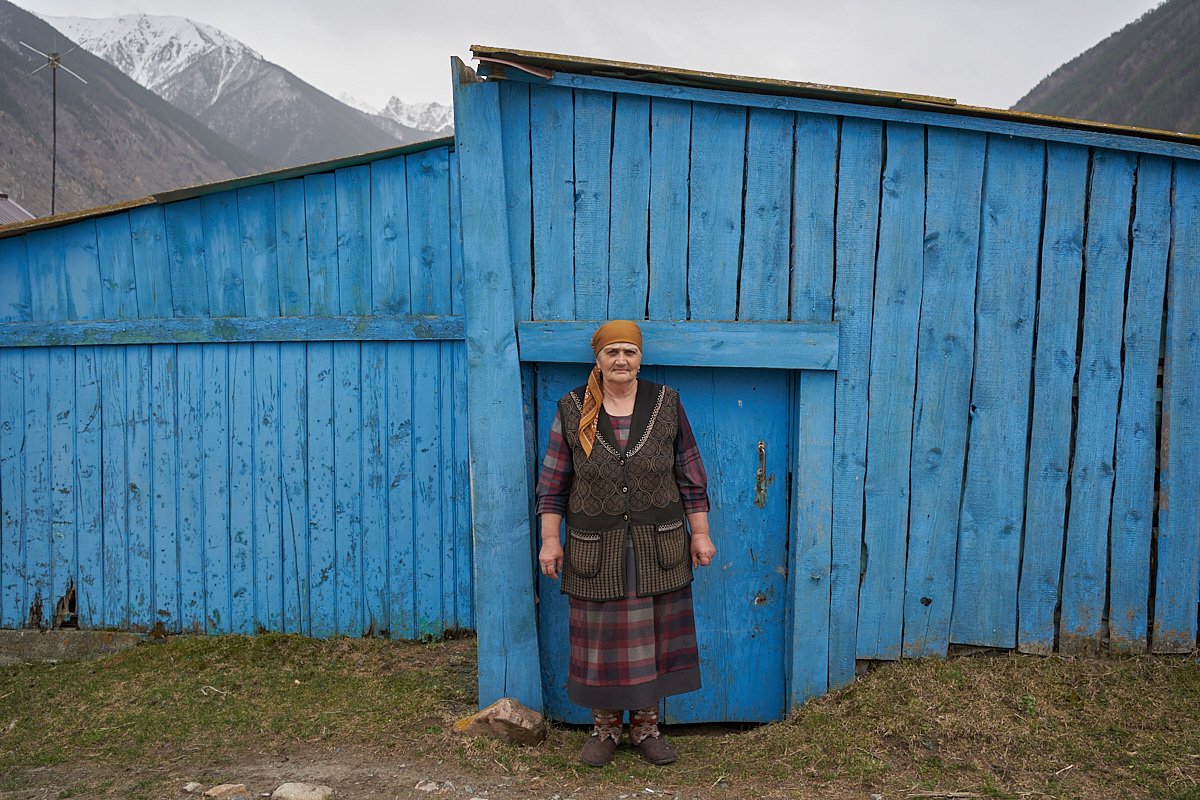Anastasia Shubina
Deportation | In 1943 the Soviet leadership forced the Karachays to leave their lands in the North Caucasus and move to Central Asia. Officially, they were deported for collaborating with German occupiers and opposing the Soviet regime but these charges were later dropped. During the night the Soviets cordoned off villages and ordered people to leave their homes under the threat of execution. They were only allowed to bring enough food to last them a few days. Thus, the Karachays spent several weeks on the road, suffering from hunger and disease in overcrowded cattle cars. In Central Asia the people were separated and resettled around several regions of the Kazakh and Kirghiz SSRs. The living conditions were extremely difficult. They lived in dugouts and relied entirely on their belongings brought from the Caucasus. In the first few years of exile the population decreased by a quarter. Only 13 years later, in 1956, the Karachays were rehabilitated and allowed to return to their homeland.
Khurzuk, Uchkulan and Kart-Dzhurt auls used to be the cultural and economic center of Karachay, but after the deportation they fell into desolation. Now, only three thousand people live there, many of whom are elderly survivors of the deportation or were born in Central Asia. Despite having spent much of their lifetimes in deportation, they retain their culture and language. Centuries old log houses are still standing in the auls, despite the fact that during deportation they were burned, dismantled for firewood, and turned into barns and outbuildings. Many of the houses are now dilapidated, but people kept living in them until recently. The Karachays’ houses were also plundered, but they managed to preserve their antiquities by bringing them along into exile and then bringing them back to the Caucasus.
The Russian government recognized the deportation of the Karachays as genocide in 1991. While the deportation affected all families and is painful to remember, the Karachays are convinced that their story is unjustly forgotten and strive to tell it. https://glish.org/




























